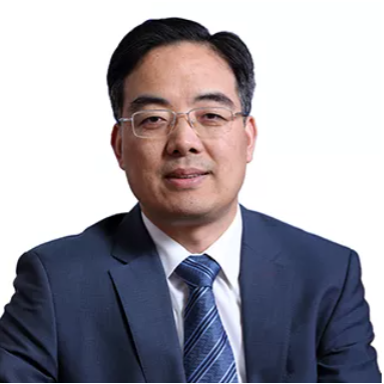Editor's Recommendation:
Chongqing Kang, Director of the Energy Internet Research Institute of Tsinghua University and the first recipient of the IET Achievement Medals since their inception, gave an exclusive interview to IET.
This article is adapted from IET Engineering Technology, a publication by IET Engineering Technology

The 2021 IET Achievement Medals, awarded by The Institution of Engineering and Technology (IET), were officially announced in 2021, honoring only five scholars worldwide. Professor Chongqing Kang of the Department of Electrical Engineering at Tsinghua University became the first Chinese recipient of this award in the energy and power sector since its inception in 1987.
The IET Achievement Medals are awarded annually to outstanding talents in engineering and technology from around the world, acknowledging their remarkable contributions in their respective fields. This year, Professor Chongqing Kang received the Energy and Power Engineering medal for his excellent work in power system automation and gave an exclusive interview to IET.
At present, Professor Kang’s main research interests include modeling, analyzing and forecasting the uncertainty of power systems, exploring low-carbon planning and operation strategies under high renewable energy penetration, and studying power system transformation from a carbon perspective. This is exactly the field that earned him the nomination for the IET award this year.
Regarding his award-winning research areas and directions, Professor Kang shared more insights with the IET on his current research achievements: "The Energy Intelligence Laboratory (EILAB) where I work has a solid research foundation in fields such as power system planning and operation, power market, and low-carbon power technologies. In power system planning, we have conducted various theoretical studies on integrated optimization of power grid and comprehensive resource planning, which have been widely applied. In power system operation, we have developed a multi-time-scale renewable energy consumption method and proposed the theory and method for market-oriented scheduling. In the power market, we have also studied the theories and methods of power futures, spot and power generation rights trading tailored to China's specific conditions, and participated deeply in the development of power system reform documents and the drafting of related supporting documents. In the low-carbon power technology field, we have proposed new concepts, new models and new methods, such as low-carbon power dispatch, flexible operation of carbon capture power plants and carbon emission flow."
This award is not only a recognition for myself, but also an affirmation of Chinese scholars and researchers.
- Professor Chongqing Kang
Professor Kang said in the interview that he was very fortunate to receive the Achievement Medals on his first nomination and expressed his sincere gratitude to IET. He first thanked the IET China Office for its assistance in the application, the nominator for his/her strong support, and the IET Review Committee for its recognition of his research efforts. He also recalled the close attention and long-term support that IET has given to the Department of Electrical Engineering of Tsinghua University in daily scientific research activities such as the Innovation Forum for Ph.D. Students over the past years, and expressed his appreciation.
The COVID-19 pandemic has hindered in-person academic exchange and sharing in the international community. In this context, the entire process of applying for IET Achievement Medals was done online.
With the clear process guidance of IET, the assistance from the Chinese staff of IET, and the support of the nominator, the whole nomination process went through 'zero' obstacles.
- Professor Chongqing Kang
In the critical juncture of China's energy transition and attainment of the "carbon peaking and carbon neutrality" goals, Professor Kang expressed his hopes for the younger generation of scholars and engineers, urging them to grasp the historic opportunities for the goals and the establishment of a new power system, to based their work on the practical needs of China, to face the difficulties head-on, to overcome the constraints, and to contribute to the prosperity and development of the national energy industry. He gave an example from his own work. Professor Kang's research group proposed the theory of carbon emission flow analysis in power systems in 2012, and has jointly developed the first physical carbon meter system and energy carbon measurement platform for power systems ("source-grid-load") in China with Jiangsu Electric Power Co., Ltd. and Changzhou Power Supply Company. The platform was officially launched at the end of September 2021. This is the first key technology and equipment application officially released by the Carbon Neutrality Research Institute after its establishment. Looking ahead to the future of the industry, Professor Kang hoped that scholars from different countries in the energy and power sector could collaborate with their Chinese counterparts to explore the path towards carbon neutrality and the technologies supporting new power systems, inspire each other, and cooperate for development. Since the 21st century, various initiatives in China's power industry have achieved remarkable progress, and the research achievements of Chinese scholars and engineers have been acknowledged by their international peers. IET is also actively implementing the 2030 strategy through its own influence, and building an international academic exchange platform for peers in the engineering technology industry in China and around the world. As Professor Kang mentioned, "I look forward to IET continuing to promote scholars from all levels and fields to visit China and establish deeper and closer connections with Chinese scholars in the power and energy industry after the pandemic is mitigated."
IET supports the daily work of the Department of Electrical Engineering of Tsinghua University, providing various opportunities for study and research to future engineers. These include the Innovation Forum for Ph.D. Students in the Department of Electrical Engineering, IET Student Member and the Electrical Engineering Student Day. With its mission to inspire and influence global engineering and to support technological innovation for social needs, IET is committed to offering more extensive and robust support to young researchers and engineers. It aims to help them advance quickly, foster more meaningful collaboration, and create more effective communication platforms. IET also plans to enable young engineers to participate in wider international cooperation to contribute to the energy transition and sustainable development in China and around the world.
Profile

Professor Chongqing Kang
He is a leading talent in technological innovation under the National “Ten Thousand Talents Plan”, a winner of the National Science Fund for Distinguished Young Scholars, and a Fellow of IEEE, IET, and CSEE. Professor Kang currently serves as the Chair of the Department of Electrical Engineering, and the Director of the Energy Internet Research Institute of Tsinghua University, the Sichuan Energy Internet Research Institute, and the Tsinghua University-State Grid “New Generation Power System” Joint Research Institute.
His research interests include power system planning and reliability, power system dispatching and operation, renewable energy, low-carbon power technologies, load forecasting, and energy Internet. He has led several major national research and development projects, as well as major international cooperation projects sponsored by the National Natural Science Foundation or supported by joint funds. He serves as the Deputy Secretary General of the Chinese Society for Electrical Engineering, Chairman of the Education and Youth Committee, Vice Chairman of the International Cooperation Committee, and Vice President of the Beijing Electrical Engineering Society. He is or has been the editor-in-chief of the International SCI journal “International Transactions on Electrical Energy Systems” and a member of the editorial boards of many domestic and foreign journals. He is a member of the CIGRE SC C1 Strategic Advisory Committee and the Chairman of the Power System Development and Economics (C1) Special Committee of CIGRE China National Committee. He is also a member of the IEEE PES Long Range Planning Committee and the IEEE PES Fellow Nomination Resources Committee. He holds more than 40 authorized invention patents (including 5 international patents) and 15 software copyrights. He has published 5 books in Chinese and English, more than 100 papers on the IEEE Transactions, with more than 20,000 citations by Google, H-index of 70, and has been selected as one of the Chinese Most Cited Researchers by Elsevier from 2017 to 2020. He was awarded the 2018 China Electric Power Science and Technology Outstanding Contribution Award, Gold Award at the 44th and 47th Geneva International Invention Exhibition, and won the 2014 IEEE PES Global Power Energy Forecast Competition. He received the IEEE PES Roy Billinton Power System Reliability Award in 2021 "for contribution to power system reliability analysis and enhancement under high renewable energy penetration". He is the first recipient of the Award from Mainland China since its inception, and also the youngest one.